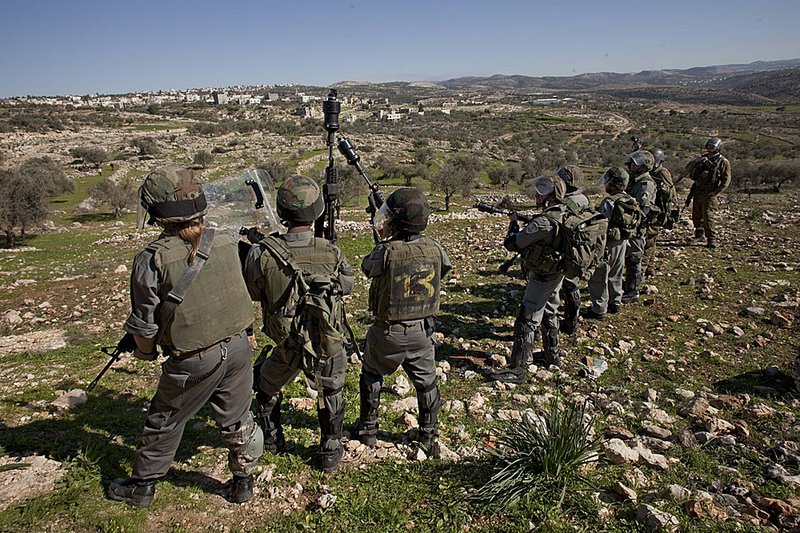UNITED NATIONS — The U.S. on Friday vetoed a draft resolution in the United Nations Security Council that would have declared Israel’s settlement construction in the West Bank and east Jerusalem to be illegal and demanded a halt to such activity.
U.S. Ambassador Susan Rice sought until the final hours before the vote to reach agreement with Palestinian and Arab diplomats on a compromise statement that would have increased pressure on Israel to cease settlement construction while stopping short of calling it illegal or demanding a moratorium.
Rice was alone in opposing the measure on the 15-member council, the U.N.’s principal policy making panel. It was the Obama administration’s first veto of a U.N. resolution and marked the 10th time in the past 11 years that the U.S. has voted against a text considered to be critical of Israel.
The veto came amid widespread protests against autocratic rulers in the Middle East and North Africa.
“The U.S. has a long history of trying to prevent the United Nations from becoming an instrument to coerce Israel, but I think in normal circumstances the U.S. veto would be less uncomfortable,” Stewart Patrick, senior fellow at the Council on Foreign Relations in Washington, said in an interview. “They have a huge priority not to change the subject of the conversation from oppression of Arabs and Muslims by their own autocratic governments.”
The peace talks, which broke down in September after Israeli Prime Minister Benjamin Netanyahu refused to extend a 10-month partial construction freeze in the West Bank, will be more difficult for the U.S. to restart after the veto, according to Robert Danin, one-time aide to former British Prime Minister Tony Blair, the Middle East envoy for the Quartet, which is composed of the U.S., the U.N., Russia and the European Union.
“The administration will feel they offered a very strong package in the form of a statement critical of Israel and instead were forced to cast the veto, something they did not want to do,” Danin said in an interview. “There will be a lot of frustration with the Palestinians, and with Israel for not having been helpful on the settlements issue.”
Palestinian Authority Ambassador Riyad Mansour said Rice offered U.S. support for stronger statements on settlement construction and other issues in the Israeli-Palestinian conflict by the Security Council and the Quartet and suggested the U.S. would consider backing a proposed Security Council trip to the Middle East.
The Arabs and the Palestinian Authority rejected the deal, saying their resolution incorporated previous language on settlements used by the U.S. government and the Security Council. The Press Trust of India reported Friday that in a phone conversation Thursday, President Barack Obama told Palestinian Authority President Mahmoud Abbas there would be “repercussions” for the U.S.-Palestinian relationship in the event the resolution was put to a vote.
The U.S. takes the position that while the settlements aren’t “legitimate,” the issue shouldn’t be taken to the Security Council. “The best forum for making progress in the negotiations, in the peace process, is in direct negotiations between the Israelis and Palestinians,” White House spokesman Jay Carney said Thursday.
Obama last year offered Israel a package of incentives to halt settlements that included a pledge to block such proposed resolutions in the Security Council, and then abandoned attempts in December to broker a freeze on construction after Israel refused to halt building.
About 500,000 Jews have moved to the West Bank and east Jerusalem since Israel captured the territories in the 1967 Middle East war. The U.N. says the settlements are illegal, and the International Committee of the Red Cross says they breach the Fourth Geneva Convention governing actions on occupied territory.
Israel says the settlements don’t fall under the convention because the territory wasn’t recognized as belonging to anyone before the 1967 war, in which Israel prevailed, and therefore isn’t occupied.
Front Section, Pages 2 on 02/19/2011

